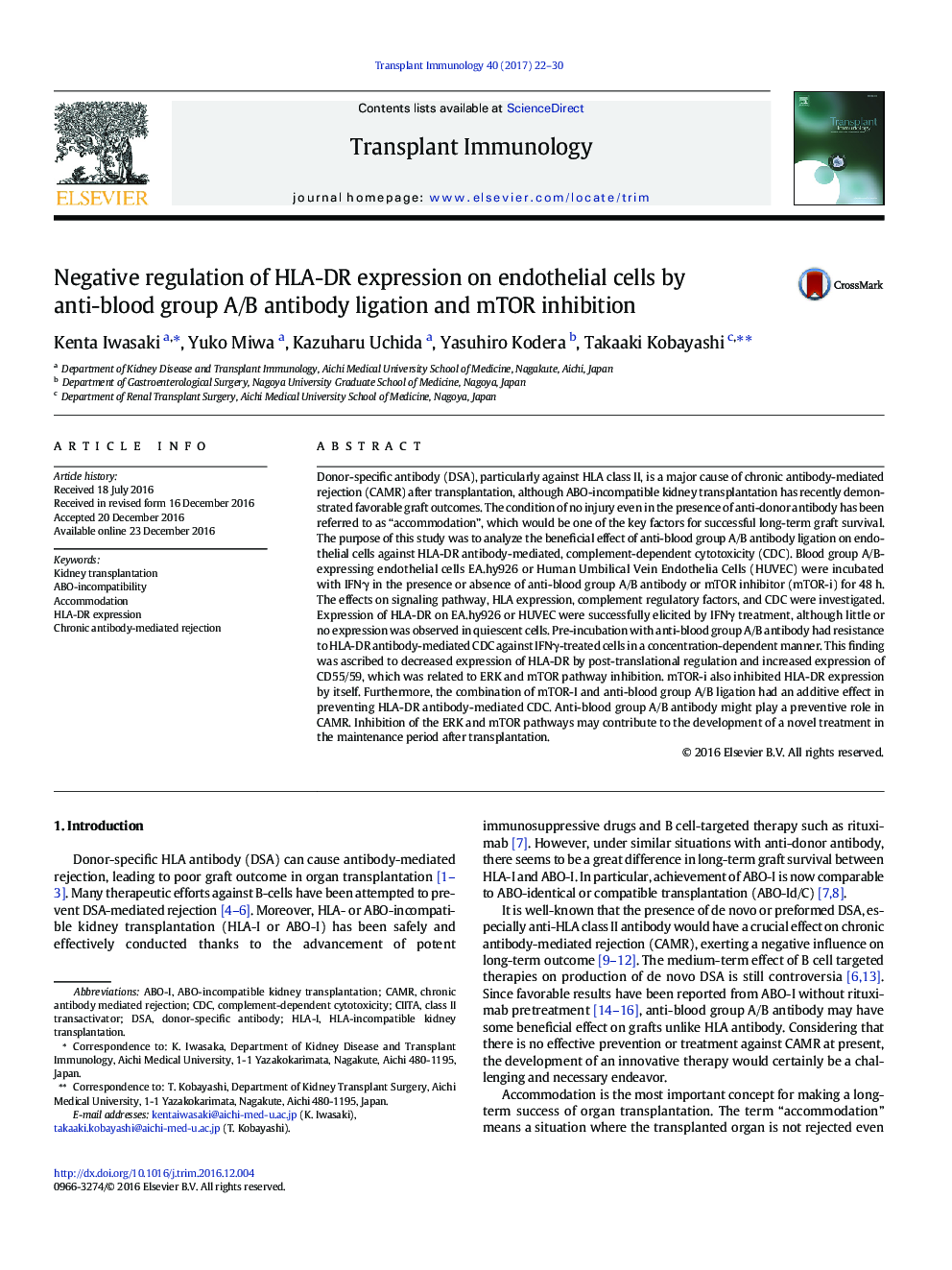| Article ID | Journal | Published Year | Pages | File Type |
|---|---|---|---|---|
| 5670480 | Transplant Immunology | 2017 | 9 Pages |
Highlightâ¢Anti-blood group A/B antibody reduced INFγ induced HLA-class I and class II DR, resulting in preventing anti-HLA antibody-complement mediated cytotoxicity.â¢Anti-blood group A/B ligation on the endothelial cells inhibited mTOR activation.â¢mTOR inhibitor could reduce IFNγ induced HLA-class II DR, and increased complement regulatory protein CD55/59.
Donor-specific antibody (DSA), particularly against HLA class II, is a major cause of chronic antibody-mediated rejection (CAMR) after transplantation, although ABO-incompatible kidney transplantation has recently demonstrated favorable graft outcomes. The condition of no injury even in the presence of anti-donor antibody has been referred to as “accommodation”, which would be one of the key factors for successful long-term graft survival. The purpose of this study was to analyze the beneficial effect of anti-blood group A/B antibody ligation on endothelial cells against HLA-DR antibody-mediated, complement-dependent cytotoxicity (CDC). Blood group A/B-expressing endothelial cells EA.hy926 or Human Umbilical Vein Endothelia Cells (HUVEC) were incubated with IFNγ in the presence or absence of anti-blood group A/B antibody or mTOR inhibitor (mTOR-i) for 48 h. The effects on signaling pathway, HLA expression, complement regulatory factors, and CDC were investigated. Expression of HLA-DR on EA.hy926 or HUVEC were successfully elicited by IFNγ treatment, although little or no expression was observed in quiescent cells. Pre-incubation with anti-blood group A/B antibody had resistance to HLA-DR antibody-mediated CDC against IFNγ-treated cells in a concentration-dependent manner. This finding was ascribed to decreased expression of HLA-DR by post-translational regulation and increased expression of CD55/59, which was related to ERK and mTOR pathway inhibition. mTOR-i also inhibited HLA-DR expression by itself. Furthermore, the combination of mTOR-I and anti-blood group A/B ligation had an additive effect in preventing HLA-DR antibody-mediated CDC. Anti-blood group A/B antibody might play a preventive role in CAMR. Inhibition of the ERK and mTOR pathways may contribute to the development of a novel treatment in the maintenance period after transplantation.
